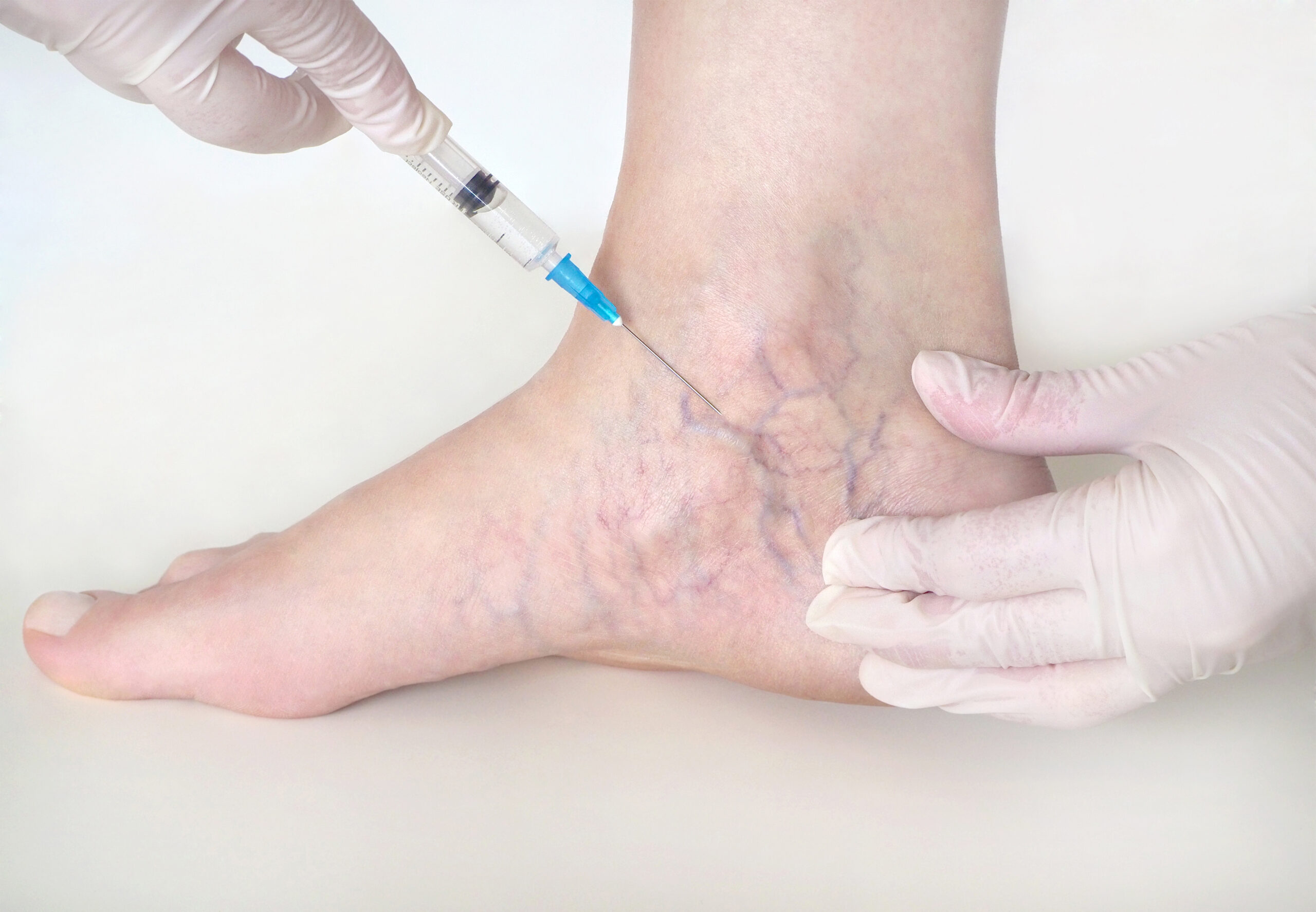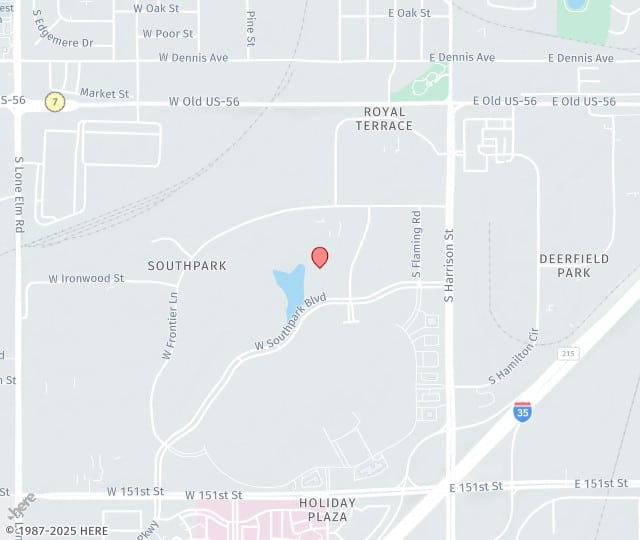
Pain management has evolved significantly over the years, with a growing shift toward treatments that prove to be less invasive and more effective. One of the most promising advancements in pain relief is radiofrequency ablation (RFA). This innovative, minimally invasive procedure is gaining popularity as a powerful alternative to other traditional methods, offering lasting relief for those suffering from chronic pain conditions. At Vein-ity, we specialize in RFA and other cutting-edge treatments to help you regain control of your life and manage pain effectively.
Radiofrequency ablation is a procedure that uses targeted heat to disrupt the nerve pathways responsible for transmitting pain signals. Originally used for conditions such as varicose veins, RFA has found wider application in treating various chronic pain conditions, including joint pain, back pain, and even neuropathic pain.
With its proven ability to reduce pain and improve function, RFA is quickly becoming a go-to option for patients seeking non-surgical solutions that offer long-lasting relief.
What is Radiofrequency Ablation?
Radiofrequency ablation (RFA) is a minimally invasive procedure that generates heat using radiofrequency energy. The heat is then applied to specific nerves causing pain, effectively “ablating” or disrupting the nerve and preventing it from sending pain signals to the brain.
RFA is typically used to treat chronic pain conditions such as arthritis, back pain, and neuropathy, especially when other treatments like medication or physical therapy have proven ineffective.
The procedure is performed under local anesthesia, and it typically lasts anywhere from 30 to 60 minutes, depending on the area being treated. One of the most significant advantages of RFA is that it requires no incisions, which means minimal recovery time and less risk of complications.
Why Radiofrequency Ablation is Gaining Popularity
Over the past few years, radiofrequency ablation has seen a surge in popularity due to its numerous advantages, including:
- Minimally Invasive: RFA does not require surgery, meaning there are no large incisions or long recovery times. This significantly reduces the risk of infection and other complications.
- Long-Lasting Relief: For many patients, RFA offers long-lasting pain relief, sometimes for months or even years, compared to other treatments that may only provide short-term benefits.
- Quick Recovery: Most patients can return to normal activities within 24 to 48 hours after the procedure, making RFA an attractive option for those looking for pain relief with minimal disruption to their daily lives.
- Targeted Treatment: Unlike medication, which affects the whole body, RFA targets the specific nerves responsible for the pain, offering precise relief with fewer side effects.
- Non-Surgical: For individuals who are not candidates for surgery or wish to avoid invasive procedures, RFA provides an effective alternative to surgical interventions.
How Does Radiofrequency Ablation Work?
- Consultation: The first step in the RFA process is a consultation with a specialist. During this visit, your medical history will be reviewed, and your pain condition will be thoroughly assessed to determine if RFA is an appropriate treatment for you.
- The Procedure: RFA is typically performed in an outpatient setting. After administering a local anesthetic to numb the area, a thin needle is inserted near the target nerve. The needle is guided by imaging techniques such as fluoroscopy (real-time X-ray) to ensure accuracy.
Once in place, the needle delivers radiofrequency energy to the nerve, causing it to heat up and become inactive, which alleviates pain.
- Post-Procedure Care: After the procedure, you may experience some discomfort or soreness at the treatment site, which typically subsides within a few days. Most patients can resume their normal activities within 24 to 48 hours. You may be asked to avoid strenuous exercise for a few days to allow your body to heal.
- Results: Many patients begin to feel relief within a few days to a week after the procedure, and the full benefits often become evident within two to four weeks. Depending on the individual and the area treated, the effects of RFA can last anywhere from six months to a year.
Why Radiofrequency Ablation is a Game-Changer for Pain Relief
Radiofrequency ablation has revolutionized pain management for several reasons:
- Effective for Chronic Pain: Whether you suffer from back pain, joint pain, or neuropathic pain, RFA offers an effective solution that targets the root cause of the pain rather than just masking the symptoms.
- Fewer Side Effects: Unlike pain medications, RFA does not carry the risk of dependence or side effects, making it a safer long-term option for pain relief.
- Minimal Downtime: The procedure is quick, and recovery is fast, allowing patients to return to their normal routine with minimal interruption.
- Precision and Targeting: RFA provides precise, targeted relief, reducing the pain without affecting the surrounding healthy tissue.
At Vein-ity, we offer radiofrequency ablation as part of our comprehensive pain management services to help you regain control of your life, and improve your quality of life.
Conditions Treated with Radiofrequency Ablation
Chronic pain is something that approximately 50 million adults in the US suffer from, according to data from the Centers of Disease Control and Prevention (CDC). RFA is effective for treating a variety of chronic pain conditions, including:
- Arthritis: RFA can provide significant relief for patients suffering from arthritis, particularly in the knees, hips, and spine.
- Back Pain: RFA can treat chronic back pain caused by nerve irritation or inflammation in the spine.
- Neuropathic Pain: RFA is used to treat nerve-related pain, including conditions like sciatica or post-herpetic neuralgia.
- Joint Pain: RFA is also effective for managing joint pain, especially in the knees, shoulders, and hips.
What to Expect During and After Radiofrequency Ablation
Here’s what you can expect if you choose RFA for pain relief:
- The Procedure: RFA is an outpatient procedure that typically lasts between 30 and 60 minutes. It is performed under local anesthesia to ensure you are comfortable during the treatment.
- Recovery: After the procedure, most patients experience minimal discomfort and can return to their normal day-to-day activities within one to two days. Some mild soreness may persist at the treatment site for a few days.
- Long-Term Results: Full pain relief may take a few weeks to develop, and results can last from six months to a year, depending on the condition being treated.
Take Control of Your Pain with Radiofrequency Ablation at Vein-ity
If you are one of the 50 million in the US struggling with chronic pain and are seeking a non-surgical, long-lasting solution, radiofrequency ablation may be the answer. At Vein-ity, our expert specialists are committed to providing advanced treatments like RFA to help you live a pain-free, active lifestyle.
Contact us today to schedule a consultation and discover how RFA can transform your pain management journey.
Frequently Asked Questions About Radiofrequency Ablation
- How long does it take to see results from radiofrequency ablation? Most patients start to feel relief within two to four weeks, with full benefits appearing within a few weeks.
- Is radiofrequency ablation safe? Yes, RFA is a safe, minimally invasive procedure with a low risk of complications when performed by an experienced specialist.
- How long do the results of RFA last? The effects of RFA can last anywhere from six months to a year, depending on the condition being treated.
- Can radiofrequency ablation be repeated? Yes, if necessary, RFA can be repeated to provide additional pain relief.
- Am I a candidate for radiofrequency ablation? RFA is ideal for patients with chronic pain conditions, especially when other treatments have not been effective. A consultation will help determine if RFA is right for you.

